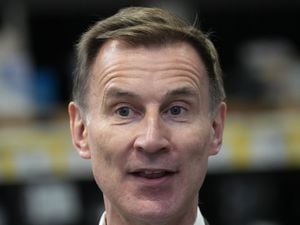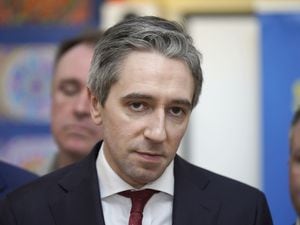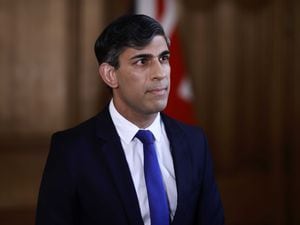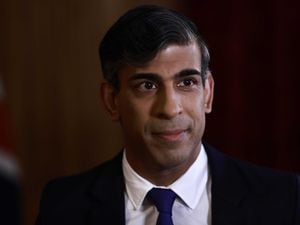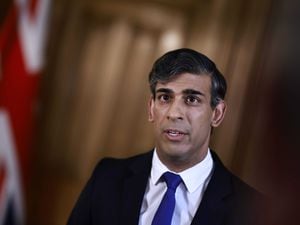Duke praises NHS virus crisis staff as ‘very best of our country and society’
William and Kate heard first hand how busy the workers are during a visit to a health service call centre.
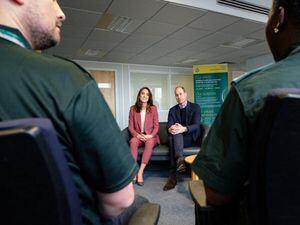
The Duke and Duchess of Cambridge have praised the selfless dedication of frontline NHS staff after witnessing first hand how busy they are dealing with the virus crisis.
William also urged the public to heed expert advice on social isolation as he described the health service and its workers as the “very best of our country and society”.
He spoke after the couple visited an NHS 111 call centre in Croydon, south London, the first engagement the royal family has publicly undertaken out and about in connection with the pandemic.
The unannounced visit took place on Thursday, but was kept secret so as to not put any additional pressure on the centre, avoid crowds gathering and not clash with the Queen’s statement to the nation in which she urged the country to “work as one”.
Afterwards, William said: “The last few weeks, and more recent days, have been understandably concerning with the continuing spread of coronavirus.
“But it’s at times like this when we realise just how much the NHS represents the very best of our country and society – people from all backgrounds and walks of life with different experiences and skills, pulling together for the common good.
“Not only are NHS staff and emergency workers responding to the needs of the public, they – like the rest of us – are concerned about their families, friends and loved ones. They need our support as much as we need theirs.

“That is why Catherine and I were proud to visit staff working at NHS 111, to pass on our personal thanks, along with those of my grandmother and father, to staff working around the clock to provide care and advice to those that need it most. It was also brilliant to see the great online tools for those with mild symptoms or worries.”
He added: “All of us have a part to play if we’re going to protect the most vulnerable. That means acting on the latest expert advice, staying home if we or those we live with have symptoms, and avoiding non-essential contact to help reduce the spread of the virus.”
During the visit Kate told the first call handler she spoke to: “It’s amazing. You’re doing such a great job bringing everyone together and providing that, the support system, for the whole public.”
William added: “There’s a lot of people out there who want to help. A lot of work is closing down elsewhere so people are going to want to come and volunteer, people want to help, people want to be there to support you guys, and everyone knows what a fantastic job you guys are doing.”

The couple heard that the number of calls from the public had quadrupled since the crisis began and that the 999 service had just had the busiest three days in its history.
The visit saw the couple adhering to the latest protocols about dealing with the disease, with no handshakes, frequent hand-sanitising and a conscious effort to socially distance themselves from people.
Garrett Emmerson, the chief executive of the London Ambulance Service, said the duke suggested that royal visits might change as the virus progresses through the population.
Mr Emmerson said: “We are all learning new ways of behaving socially as a result of this, and indeed new ways of working. We were talking with the duke about potential future visits if we are in further stages of social distancing – we may be doing remote conferencing for events like this.”
While the couple sanitised their hands twice during the visit, one member of staff forgot the new rules when she asked William and Kate for a photograph and without thinking reached out to shake their hands.
“Don’t shake hands!” William remonstrated with a laugh as he brought down his other hand to cut her off.
The duke and duchess heard how the 111 service was seeing a “fantastic volume of demand”.
During a conversation with a group of staff, which saw William and Kate sitting more than two metres from everyone else to show the importance of social distancing, Euan Flood, 34, a paramedic, told them how the 111 service was “incredibly busy”.
He said: “We are getting calls one after the other. Currently we have a few hundred calls waiting to be called back, anything from a day to two, three days old.
“We are finding that people are quite understanding when we call them back. They are quite accepting that they know it’s busy, they know it’s going to be a long time. We try and get through them as quickly as we can, but safely as well.”
He added later: “We are hearing a lot of panic about self-isolation. People don’t really understand the guidance, so we have to explain it to them fairly regularly. But once we explain it people tend to understand why we are advising it.”
Mr Emmerson said they were getting about four times the normal number of calls.
Dr Agatha Nortley-Meshe, a GP and the assistant medical director of the London Ambulance Service, told the couple the call centre had a multi-disciplinary team with GPs, pharmacists, nurses and paramedics who were working “extremely hard”.
She added: “Within the massive volume of calls, there are a lot of people asking for advice and reassurance. But there are also some really sick people in there. It’s about making sure we get people to the right place, we get people the advice they need, we get people the care they need.”
However, the guidance they are given changes so quickly that the staff have to work hard to keep up to date with what they are supposed to be telling the public.
Mr Emmerson said: “With advice changing and guidance changing, it is still a big challenge to keep people up to date with information.”

The message was hammered home that the first thing people should do is look on the NHS website for advice before ringing 111.
However the duke said: “I imagine that you are concerned that a lot of (the public) don’t have internet access, therefore (having) 111 to call is really important.”
Dr Nortley-Meshe replied: “Online can only take you so far. If you need a clinician, you need a clinician.”
The duchess asked how many of the calls reflected people’s mental health issues.
Mr Emmerson said: “Quite a large volume. It all feeds into each other. People with mental health issues are more concerned about coronavirus and how to manage that.”
Dr Nortley-Meshe said that patients on regular medication were concerned that they would continue to get the drugs they needed.
“There has become a significant panic around making that if people are going to self-isolate, that they are prepared.
“We are getting calls about not just ‘I’m ill, I think I might have coronavirus,’ but ‘If I have to self-isolate, can I get my medication on time? Can I get care on time?’ All of those kinds of cares and concerns. That is adding to the workload.”
The duke also repeatedly asked whether members of the public could help by volunteering.
“A lot of people will want to help. Is there any way that the public can do their bit to help you guys out?”
Mr Emmerson said: “We are actively looking at that. We have a lot of former employees, retired employees, people who used to work in our service but are now in other fields, for instance the airline industry.
“As staff are laid off, they are saying, ‘Can we bring our skills back?’
“It extends beyond call-handling and frontline clinicians into support functions like vehicle maintenance.
“How to put more vehicles out there than we have probably ever done before. We are talking to other organisations about how they might be able to help us.”
As the duke and duchess toured the large room where the call handlers work – but not before sanitising their hands for a second time – William broke off from a conversation with Mr Emmerson to talk to two members of staff.
Tracy Pidgeon, 54, who normally has a management job but is helping out with calls, said: “He was asking about how busy we have been, and what shifts everybody was doing. We were saying everybody was working really hard.”
She added that the visit had made William nostalgic for his old job as an air ambulance helicopter pilot.
“He misses the helicopter, being on the front line. He just said he misses it.”
Later Mr Emmerson was asked if the duke would be a useful addition to the ambulance service.
He said with a smile: “As he knows well, we have an air ambulance service here in London. I know that he would be welcome there any time.”
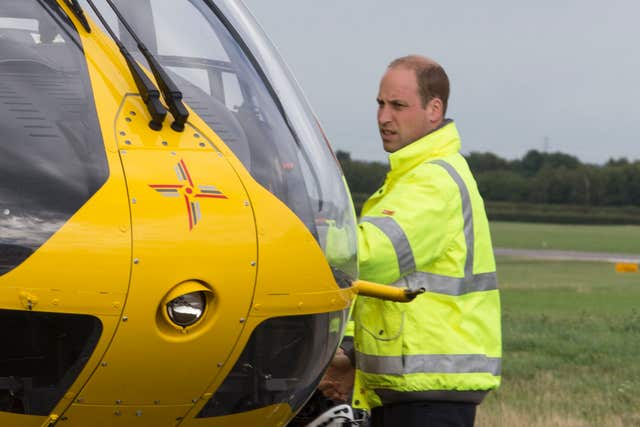
As they toured the room, staff could be heard asking people a string of questions – and reassuring them that they had been right to call 111.
“Have you become breathless, or more breathless than usual?… Put your hands on your chest for me, sweetheart.”
Future king William, 37, is the most senior royal in the line of succession who is young enough not to be affected by warnings that over 70s are more at risk of serious complications from the Covid-19 illness.
The Queen, who is 93, is at Windsor Castle with the Duke of Edinburgh, where they are socially distancing with a reduced household for their safety, while heir to the throne the Prince of Wales, who is 71, is at his country retreat Highrove in Gloucestershire.
William, whose two eldest children Prince George and Princess Charlotte are affected by school closures, launched a video appeal on Wednesday for the National Emergencies Trust to raise money on behalf of local charities working with those most at risk during the crisis, .
Before he left the call centre, he told the staff: “Well done on you guys. It’s lovely to see you.”

